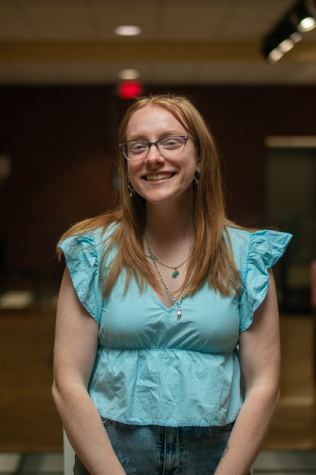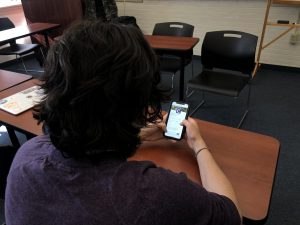COVID-19 prompts changes to academic calendar for spring 2021 semester

November 6, 2020
The COVID-19 pandemic brought many changes to Chatham University’s fall semester, including the cancellation of the traditional fall break in October and a greater mix of virtual and in-person classes.
For the spring semester, expect more changes — which has left some students feeling wary.
On Oct. 15, an email was sent to Chatham students about the University’s decision regarding the format for the spring semester.
The biggest change is to the academic calendar, which includes the elimination of spring break in 2021. Traditionally, spring break is held near the middle of the semester. However, since COVID-19 cases are still active and currently rising, there are concerns about what a spring break could mean for campus safety.
“Spring break felt challenging in regards to students leaving campus and returning,” said Dr. Jenna Templeton, vice president for academic affairs. “However, we all need a little bit of a break.”
Chatham has tried to accommodate the lack of a spring break by providing academic respite days, which are designed to allow students to have the break that they need without leaving campus. During these days, the campus will be closed for classes. There will be one day off per month: Thursday, Feb. 11; Tuesday, March 2; and Friday, April 2.
These respite days were chosen by Templeton and other academic advisers. Other higher education institutions are planning a similar approach to days off as a result of COVID-19.
“We didn’t want to disadvantage one day over another,” Templeton said about how the dates for respite days were selected.
The spring semester also will look a little different when it gets underway Jan. 6. Through Jan. 8, there will be no formal, in-person classes. Instead, there will be informal sessions online that will consist of syllabi review and the independent acclimation to Brightspace, Chatham’s learning management system.
The following week (Jan. 11 – 17) will be virtual class delivery. There will be no classes on Jan. 18 to observe Martin Luther King Jr. Day. The first day of in-person classes will be Tuesday, Jan. 19.
The spring semester is scheduled to end April 23.
Just like the fall semester, the spring semester will offer three forms of class delivery: classroom, virtual and online.
On the website, it states, “Faculty, instructors and students should be prepared to move between in-person and virtual modes of instruction, as opportunities for in-class meetings, physical distancing recommendations and public health concerns can change at any time.”
Students are being requested to shelter-in-place two weeks before their in-person classes begin at Chatham. To help with physical distancing, the move-in days are scheduled for Jan. 4-6 so the whole campus is not moving back at once.
The staggered move-in days will be assigned like they were during the fall 2020 semester. Students will be informed soon about their assigned day.
Students residing off campus must shelter-in-place 14 days prior to their first class at Chatham. However, students who reside on campus will start their shelter-in-place upon their arrival back to campus.
“To ask the Chatham community to close their circle in the middle of the holiday didn’t seem reasonable to us,” Templeton said. “So, having students [shelter-in-place] on campus prevents them from doing that.”
Templeton isn’t worried about students not following shelter-in-place protocol.
“We have found that the Chatham community cares about the community and their education,” she said. “Students care enough to attend class and achieve their goals. There is also a concern for the safety of their family.”
Chatham has decided that, like the fall semester, it will extend the refund period for withdrawal from the University, housing and meal plans. It’s also offering a ninth semester of financial aid to all full-time undergraduate students enrolled this academic year.
Racheal Weighley ‘24 is one of many students who is considering whether or not to withdraw from housing, or remain on campus next semester.
“I was looking online at the class options and only one of the classes I want is in person,” she said. “It makes me upset because I want to live on campus, but at the same time if all of my classes are going to be virtual, then why would I pay for housing?”
Many students have other concerns about the return to campus for the spring semester. Nicole Colligan ‘21 said, “I’m feeling hopeful for the next semester, but I’m also doubtful that we’ll remain here.”
Alyssa Ferris ‘24, agreed, adding that, “I’m feeling anxious about the spring semester because I am unsure of whether or not we will be having classes in person, or if we’ll be at home because COVID-19 is unpredictable.”
Templeton said students should check the University’s COVID-19 dashboard and other online resources to stay informed about campus updates.
Despite the uncertainties, students like Liam Sombar ‘23 are determined to stay hopeful.
“I am cautiously optimistic for the upcoming semester and am hopeful for an opportunity for us all to come together,” he said.
Templeton agreed: “We are really hopeful. This fall has shown us how flexible we can be.”







